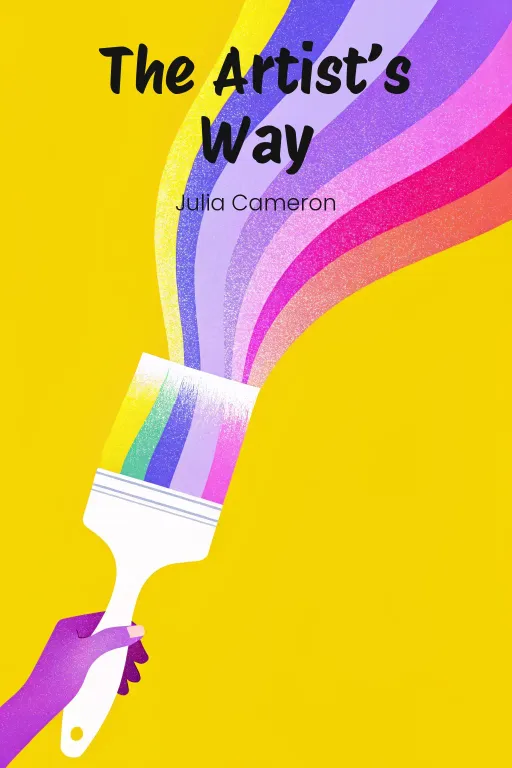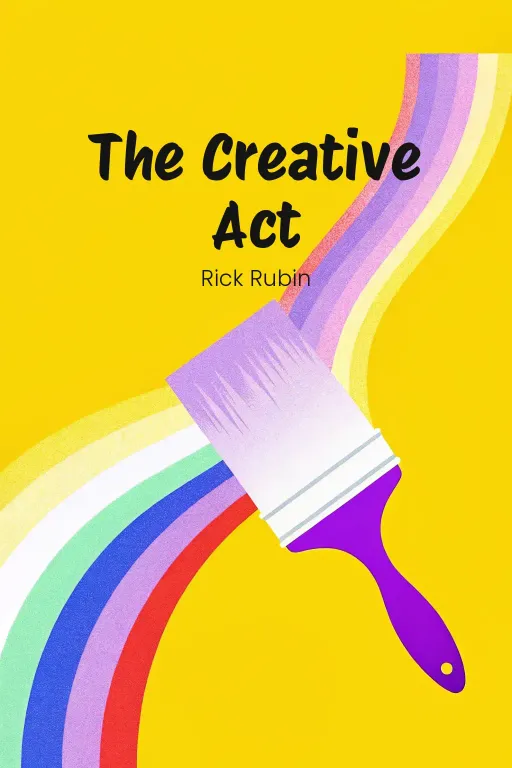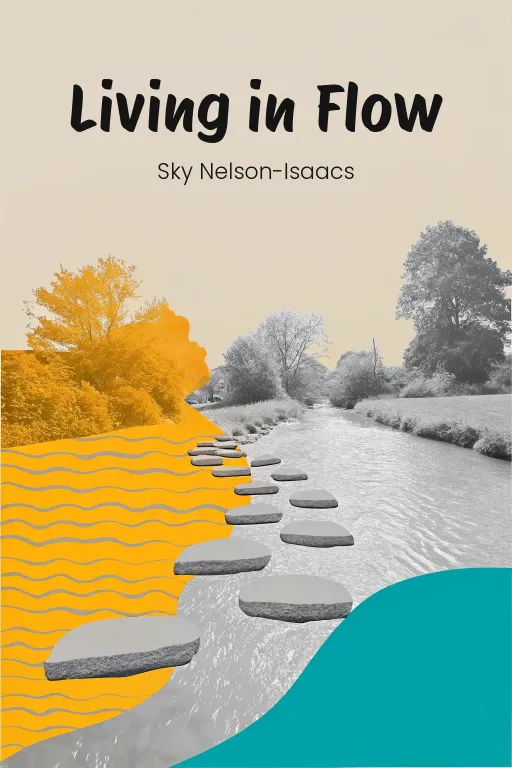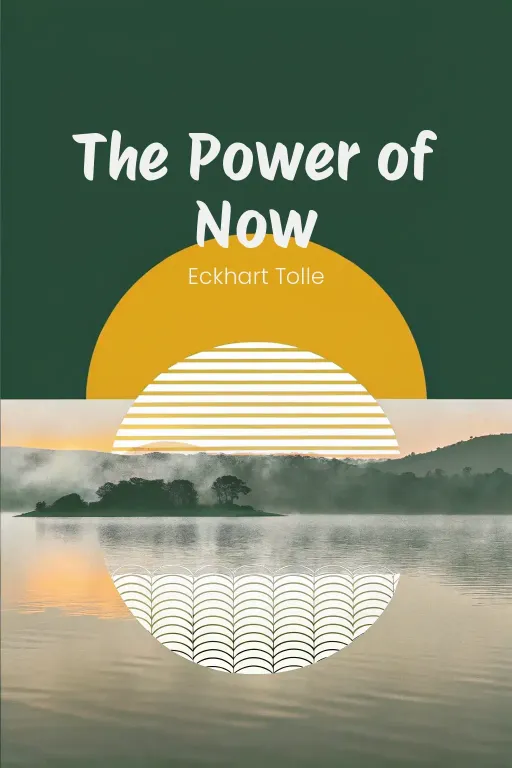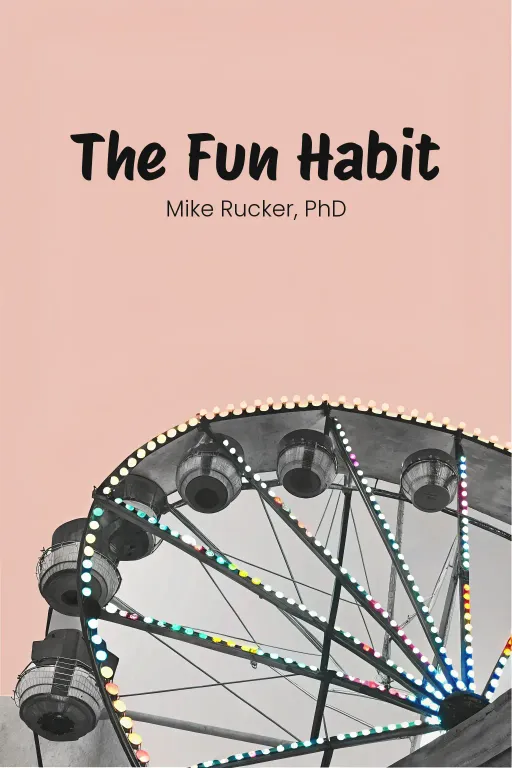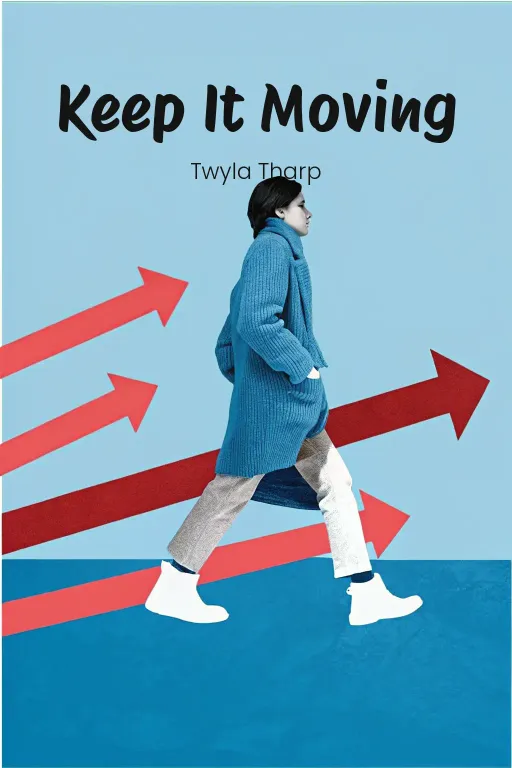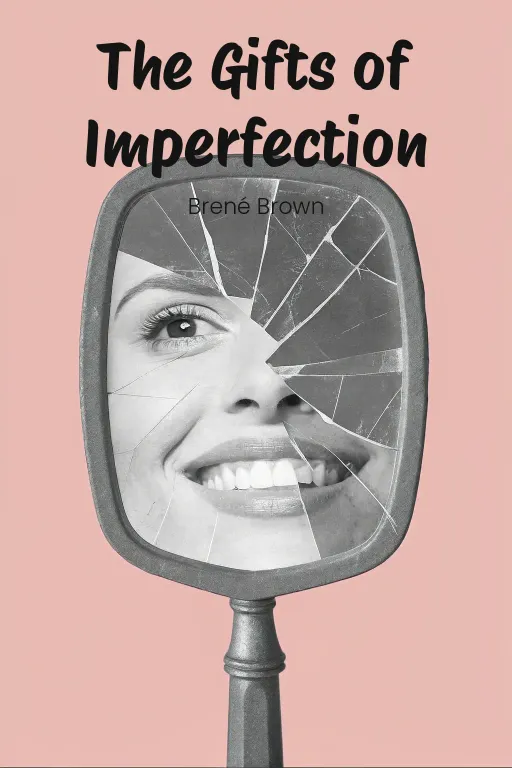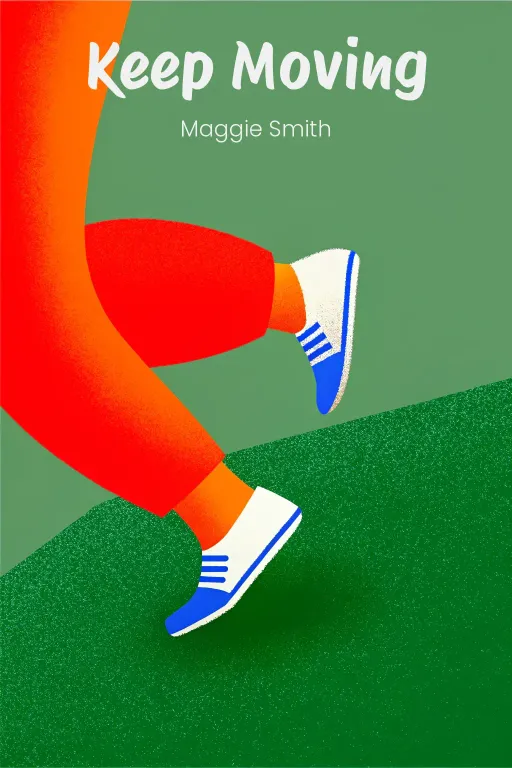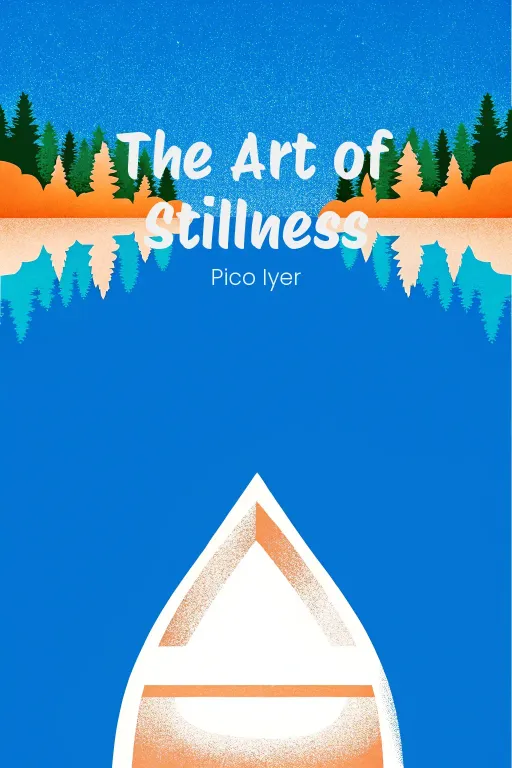
Find Your Fun: Thrive, Don't Just Survive
Podcast by The Mindful Minute with Autumn and Rachel
How the Pursuit of Joy and Wonder Can Change Your Life
Find Your Fun: Thrive, Don't Just Survive
Part 1
Autumn: Hey everyone, welcome back! So, tell me, when was the last time you genuinely had “fun”? And I'm not talking about mindlessly scrolling through social media or binge-watching TV. I'm talking about that kind of fun where you completely lose track of time and feel truly energized. Rachel: You're assuming our listeners even “have” the time for fun, Autumn! But you're right, it's a good point. “Fun” almost feels like a luxury these days, something we squeeze in if we have the energy, rather than something essential. Autumn: Exactly! That’s why we're talking about Michael Rucker's “The Fun Habit” today. It's a really interesting book that kind of flips the whole pursuit of happiness on its head. Instead of chasing this elusive "happiness," it argues for something much simpler, more accessible: good old “fun”. Rachel: Okay, so, "life philosophy," got it. First word that springs to mind: fun. I mean, instead of wrestling with, you know, the meaning of existence, why not just grab a glow stick and hit the karaoke? Seems legit. Autumn: Okay, sarcasm aside, Rucker actually makes a really convincing argument. The book is full of research, insights, and practical tools—like his PLAY model—showing how actively incorporating fun into your daily life can boost your well-being. We're not talking about ignoring your problems, or putting on a fake smile. It's about making fun a conscious practice that enriches your life, both personally and socially, in really tangible ways. Rachel: Alright, so we're going to break that down into three parts today: First, we'll look at why fun isn't just some frivolous extra, but is actually scientifically proven to be vital for your mental health. Second, we’ll dive into the how-to—the “toolkit”, if you will—for making fun a consistent habit. And finally, my favorite part, we'll explore how fun doesn't just improve “you”, but actually ripples outward, sparking creativity, connection, and even driving change. Autumn: Think of it as taking your life from black and white to full color. Fun isn’t just a break “from” life’s challenges—it’s a way to really thrive “in spite” of them.
The Necessity of Fun
Part 2
Autumn: Okay, let’s dive right in. Why is fun so crucial? Rucker “really” hit me with his take on the "happiness trap." It was a real eye-opener. Rachel: Oh, the endless pursuit of happiness! Rucker basically argues that we’ve been tricked into thinking that achieving certain things—money, status—will make us happy. But, surprise, it doesn't work that way. Autumn: Exactly! He points out how this constant chase can actually make us more aware of what we don't have, right? Like constantly comparing yourself to an ever-receding benchmark. Rachel: Totally. And he shares a very personal example of that. You know, he had achieved all the markers of success, yet he felt empty. That led him to realize that what we often think of as happiness depends on external factors, things beyond our control. Autumn: Right, which is why his focus on fun is so appealing. Unlike happiness, which is often this vague goal, fun is tangible. It’s in the present moment, and it's something we can actively bring into our lives. Fun meets you where you are, regardless of the situation. Rachel: And the science backs this up! The study by Matthew Killingsworth shows that people are happiest when they’re fully engaged in what they’re doing. I mean, even if the activity itself isn't that exciting, being present makes a huge difference. Autumn: Fun naturally creates that engagement, doesn’t it? It pulls us into the present, whether we’re laughing with friends, exploring a new hobby, or just enjoying a silly moment. It's like a mental reset—a way to step away from stress and reconnect with what matters. Rachel: Connection is key, right? Because fun isn't always a solo activity. Rucker makes a great case for how it helps us be more resilient during tough times, like during the pandemic. Autumn: Exactly! Think about how creative people got when they couldn't rely on their usual sources of fun, like traveling or going to concerts. Families created themed movie nights; friends had virtual game nights. These weren’t just ways to kill time; they were lifelines, offering relief from fear and loneliness. Rachel: And what I loved about those examples is that they weren’t extravagant. They were small, intentional moments. It challenges this idea that fun has to be something huge or expensive to matter. Rucker says it can be as simple as having a picnic indoors or just dancing with your kids in the hallway. Autumn: That simplicity is what makes it so powerful. Even in the darkest times, small moments of fun can break through and remind us that we can still feel joy. It’s not about ignoring reality; it’s about giving ourselves a break and finding the strength to keep going. Rachel: Speaking of resilience, I found it “really” interesting that Rucker sees fun as a tool not just for surviving hard times but for thriving in the long run. He explains that fun helps us build emotional reserves, so we can handle stress better, manage conflicts, and bounce back from setbacks more easily. Autumn: Yes, and it’s not just about individual benefits. Fun has a ripple effect. Shared fun builds connections, strengthens relationships. Those moments of laughter with others during tough times don’t just feel good in the moment; they build trust and deepen bonds. Rachel: Okay, so let me push back a little here. If fun is as transformative as Rucker says, why do we struggle to prioritize it? Do we just feel guilty, like we're wasting time if we're not being "productive"? Autumn: Partly. I think it goes back to societal values—this pressure to always be working toward something, whether it’s a career goal or self-improvement. Fun is often seen as frivolous, when it’s actually crucial for our well-being. Rachel: And ironically, that obsession with productivity can make us less effective. Burnout, disengagement, lack of creativity—it all adds up. Fun isn’t just a “nice-to-have”; it's preventive maintenance for your mental health. Autumn: That’s a great way to put it. Fun prevents wear and tear, both emotionally and socially. And by shifting our focus from this endless pursuit of happiness to the here-and-now engagement of fun, Rucker is “really” proposing a fundamental change in how we see our lives. Rachel: A shift from chasing happiness to cultivating fun—I like that. It’s like… happiness is the pot of gold at the end of the rainbow, and fun is the sunshine that creates the rainbow in the first place. Autumn: Beautifully said, Rachel. By embracing fun, we stop waiting for everything to be perfect to feel happy. Instead, we learn to embrace the present moment, no matter how imperfect it may be. Rachel: So maybe fun isn’t frivolous at all. Maybe it's essential. And if we start seeing it as a vital part of a balanced life, we might find that the things we’ve been chasing were within our reach all along.
Practical Strategies for Incorporating Fun
Part 3
Autumn: So, now that we've talked about why fun is so important, let's get into the how. How do we actually bring more of it into our lives? Rucker really delivers here with some practical tools, and my favorite is definitely the PLAY Model. Rachel: Ah yes, the PLAY Model. I gotta say, it's pretty ingenious. It's basically a way to audit your time, right? You break down your activities into four categories: Pleasing, Living, Agonizing, and Yielding. And, I'll be honest, it made me realize how much of my week falls squarely into… Agonizing. Autumn: You're definitely not alone there, Rachel! Most of us find our lives overloaded with tasks that drain us. But the beauty of the PLAY Model is that it doesn't just point out the problem, it gives you a framework to actually do something about it. Rachel: Okay, so let's unpack this a bit for the listeners. Pleasing activities—those are the easy wins, right? The things that make you feel good without a ton of effort. Like, enjoying a great cup of coffee or chatting with a friend? Autumn: Exactly! Things that naturally make you happy and keep you present. Rucker really emphasizes how these small pleasures – the things we often overlook – are a big part of what keeps us stable. I mean, think about Killingsworth's research from Harvard. He found that people are happiest when they're fully engaged in what they're doing and pleasing activities is immersion by demand. Rachel: So basically, it's giving yourself permission to prioritize joy. I am all for that! Then we move on to Living activities, which are a little more involved, right? These are the things that require effort, maybe even a bit challenging, like learning something new. Autumn: Exactly! Living is all about growth and achievement. Think of Mihaly Csikszentmihalyi's concept of "flow"– when you're completely absorbed in something meaningful and time just melts away. It definitely takes effort, but it's the kind that gives you a real sense of accomplishment. Rachel: Okay, so this would be like, you know, dedicating an afternoon to working on that creative project that you always wanted to do, instead of…what…doomscrolling on social media, which…we'll get to later. But then we get to the dreaded Agonizing category. That’s where all the not-so-great things live, like answering a lot of work emails, or dealing with taxes. Autumn: Totally! The energy-drainers. But Rucker actually gives us some actionable advice here. He says the goal isn't to eliminate those tasks altogether, because, let's be real, life happens. Instead, he suggests finding ways to reframe them. To make them more bearable, maybe even enjoyable. Like listening to a podcast during your commute, or pairing laundry with your favorite music. Rachel: So, basically, smuggling fun into the not-so-fun. I can get behind that. And then there's Yielding, which, honestly, I think is where I had my biggest "aha" moment. See, I thought these were good things. It's the stuff that feels like downtime, but actually leaves you more drained afterward. Like, you know, binging TV or scrolling Instagram endlessly. Guilty as charged. Autumn: Yeah, and what's tricky is, it feels like rest. Like, "Oh, I deserve this break." But the thing is, if you do too much of it, it leaves you feeling empty, not refreshed. Rucker's solution is to redirect those moments towards something—a Pleasing or Living activity. Even ten minutes of a hobby, or connecting with someone you care about can make a huge difference. Rachel: Okay, fine, maybe my three-hour sessions of “researching” cat memes isn’t as restorative as I thought. But I do appreciate the reality check here. The PLAY Model makes you confront your routines and make conscious decisions. It’s not about cutting out all the "bad" things. It's more about shifting the balance towards things that actually have value. Autumn: Exactly! It's an audit, not a judgment. And that's where Rucker introduces another great technique: activity tracking. By consciously logging your daily tasks, and honestly evaluating how they make you feel, you can really spot trends and adjust accordingly. Rachel: Right, this is where I see the potential, even for skeptics like me. Tracking feels like, you know, analytics for your own life. it shows you "Oh, I spent five hours on social media, and my guitar is untouched in the corner, maybe these can be swapped." Autumn: And that swap could be something as small as just picking up the guitar for five minutes. You don't have to overhaul your life overnight. These small tweaks add up to big change. Plus, tracking helps you break out of autopilot, where you're just doing the same actions over and over, without even realizing. Rachel: It all kind of fits into this idea of living intentionally, right? Rucker gets at that with his idea of simplifying responsibilities, like getting rid of the non-essentials to make time for joy. Autumn: Exactly, it's a really practical approach to deal with our busy modern lives. Rucker gives examples like hiring a dog walker or saying no to things that don't align with your values. Small changes, huge impact! Suddenly you've got time for something truly meaningful—like finally planting that garden, or picking up one of your favorite hobbies. Rachel: Which flows perfectly into one of his last strategies—keeping "Fun Boosters". Those visual or physical reminders of joy. I think that's such a simple but effective idea. Like, looking at a photo from a really amazing road trip, and turn that into motivation to plan another one. Autumn: And it's backed by science too! Gratitude studies have shown that reliving positive memories can really boost your mood and resilience. Fun Boosters aren't just decorations, but also motivational tools. Rachel: So, to recap our pillars: understand and optimize your time with the PLAY Model, track your activities, say no to things that don't matter and surround yourself with joyful reminders. I mean, it's almost ridiculously simple. Autumn: Right? And yet, we often overlook the simple things. Rucker is shifting our focus from "I have to earn my joy later" to "I can create and prioritize it now." These small, intentional efforts really do add up, and lead to lasting enjoyment. Rachel: So, no need for glow sticks or karaoke machines. It's just...purposefully weaving joy into your every day! That, Autumn—that’s something even I can get behind.
Fun as a Catalyst for Personal and Community Transformation
Part 4
Autumn: So, armed with these individual strategies, the conversation naturally broadens to fun's impact on personal and community growth. Rucker “really” pushes beyond the individual level here, showing how fun can kickstart bigger changes. It's like, the discussion goes macro, linking the personal and communal benefits. It's about how fun creates ripple effects—not just in our lives, but in our relationships and the collective energy we build together. Rachel: Okay, this is fascinating. Fun as a way to bounce back personally? Makes sense. But fun as a driver of social change? That's a bit of a leap, isn't it? Autumn: Maybe not as big as you think. Think about the Ice Bucket Challenge. Remember that craze back in 2014? Rachel: The one where everyone was dumping ice water on themselves for charity? Politicians, celebrities, even the guy delivering my mail. What actually came of it besides a lot of shivering? Autumn: Actually, the Ice Bucket Challenge pulled in $115 million for the ALS Association and got people talking about ALS, which is a neurodegenerative disease most people hadn't even heard of. It wasn't just the money—it was the way it united millions. By mixing humor, creativity, and good times, it made something serious—a disease fundraising campaign—approachable and, well, fun. Rachel: Right, because nothing screams "approachable" like brain freeze. But, yeah, fun got people's attention. I mean, who's going to read a pamphlet about ALS research? Almost no one. But dress it up with something silly and shareable, and suddenly even the Instagram crowd is in. Autumn: That's it! It shows how fun can break down walls and pull people in. It gets people involved who might otherwise feel distant from a cause. It wasn't just about donations; it was about creating a sense of global unity around a “really” important problem. And it proves that shared experiences of joy—even something simple like laughing at your friend getting drenched—can have big ripple effects. Rachel: Okay, I'm sold. And it's not just those one-off viral things, right? Rucker also talks about the everyday, smaller acts of kindness that get a boost from fun. Like those themed charity events—color runs, block parties—that are about more than just writing a check; they're about being part of something memorable and, dare I say, enjoyable. Autumn: Exactly! Research shows when you pair charitable activities with fun, people are more likely to show up and come back. A zombie-themed race, for example. It's a bit goofy, sure, but that's the point—it creates a relaxed, welcoming space where people feel connected and energized. Rachel: And that connection sticks around. It’s not just about raising money; you're making emotional memories linked to the cause. People remember the laughs and think, "I want to be part of that again." It’s participating becomes less of a task and more of a reward. Autumn: Totally. And it's not just events. Fun can help build bridges within communities. Rucker stresses collective joy—those activities where fun breaks down barriers and creates a shared sense of humanity. Block parties, festivals, even local sports leagues—they bring people together from different backgrounds and foster understanding and empathy. Rachel: So are you saying that the key to global harmony isn't deep conversation or philosophical debates, it's tossing a frisbee at a picnic? That's kind of... humbling, don't you think? Autumn: It is, but it's also beautiful. Fun is accessible to everyone. It helps us connect with each other on a basic, human level, which is super important in diverse communities. When we're doing something together, we stop focusing on what divides us and start enjoying what connects us. Rachel: Alright, alright, kumbaya moment over. Does Rucker give any actual advice for making this happen at the community level? Because, let’s be real, laughing at ice water and collective joy don't just magically appear. Someone has to make it happen. Autumn: He does, and it's surprisingly practical. He suggests creating challenges that are easy to understand and share. Remember how the Ice Bucket Challenge worked because it was simple and, well, fun? You want activities where everyone feels like they can contribute, no matter what. Rachel: And I assume he doesn't just say, "Add ice water." What's next? Autumn: Tech plays a big part. Rucker points out how social media can boost these initiatives and spread the fun. Sharing photos, videos, event updates taps into viral culture and gets more people involved. Fun becomes contagious, basically. Rachel: Like a joy-based chain email: "Pass this on, or your houseplants will wither!" Seriously, though, I see the logic. It's easier to get involved when it's easy to do and everyone seems excited. Autumn: Exactly. Smaller, local actions are just as effective. Themed community runs or quirky fundraisers add levity to serious causes. These events help people see one another as allies and contributors rather than strangers. Rachel: And I guess all of this—the joy, the shared experiences, the lower barriers—builds up over time. People see these things, participate, and think, "This feels good. I want more of this." Fun, as Rucker argues, isn't just fluff. It's transformative. Autumn: That's the core idea: fun is a catalyst, not just for personal growth but for collective action. It's a tool that unites us, inspires ongoing participation, and helps us connect with each other and the issues we care about. It's about creating ripples that go way beyond ourselves.
Conclusion
Part 5
Autumn: So, Rachel, today we’ve really dug into “The Fun Habit”, and how it totally rethinks what it means to, like, really thrive. It’s not about this endless pursuit of happiness, some far-off goal, but about seeing fun as a real, accessible way to combat stress, feeling disconnected, and just general dissatisfaction. We talked about why fun is so crucial for bouncing back, and how we can use things like the PLAY Model to bring joy back into our everyday lives. Plus, how shared moments of fun can even spark community and, dare I say, societal change! Rachel: Yeah, exactly, and what really hit me was that fun isn’t just frivolous, you know, just some distraction. It’s actually fundamental. Rucker makes a pretty strong argument for ditching the endless hustle for intentional, meaningful moments of joy. And the tools he gives us? They’re not just some academic theory. They’re real, actionable steps we can take, from tracking what we do to completely reframing our daily routines. Autumn: Absolutely. Like Rucker demonstrates, fun isn’t just a break from all the serious stuff in life; it’s a way to make it richer, to connect more deeply with yourself and the people around you. So, here’s a challenge to everyone listening: take a good look at your week. Where are your Pleasing or Living moments? And, just as important, where is the fun…missing, perhaps? Rachel: And when you spot those gaps, don’t overcomplicate things. Start small. Sing along to your favorite song, plan a fun night with friends, or even, rethink that next “Agonizing” task on your to-do list. It’s all about changing how you see things—seeing fun not as an extra, but as essential. Autumn: Because when you do, you’re not just inviting some joy into your life. You’re building a path towards being more resilient, more connected, and feeling like you have a real purpose. Rachel: Fun: the most underrated superpower hiding in plain sight. Who would've thought? Autumn: Agreed, let’s make some more room for fun, starting now. Until our next conversation, thank you for joining us on this journey into “The Fun Habit”, and remember: joy isn’t waiting for you down the road—it’s right here, right now, in the present.

